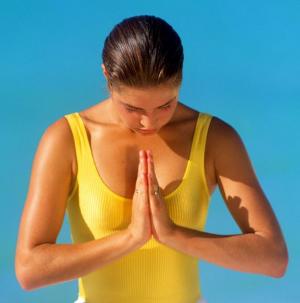 Therapy and psychiatric medications are the most common treatments for depression and anxiety. Many people, however, prefer alternative, more natural remedies. These can include lifestyle changes, herbal treatments, and alternative approaches not typically used in Western medicine, but practiced in other cultures for centuries. Clients reach for alternatives when Western medicine is unhelpful or they simply want a more natural approach. Especially for milder depression and anxiety, alternative remedies offer much hope.
Therapy and psychiatric medications are the most common treatments for depression and anxiety. Many people, however, prefer alternative, more natural remedies. These can include lifestyle changes, herbal treatments, and alternative approaches not typically used in Western medicine, but practiced in other cultures for centuries. Clients reach for alternatives when Western medicine is unhelpful or they simply want a more natural approach. Especially for milder depression and anxiety, alternative remedies offer much hope.
A Mental Health Minute by Cristina Frick
(My wonderful father died of a heart attack when I was 15, and I want to say Happy Father’s Day, Dad- I love and miss you!)
Natural or home remedies can include lifestyle changes such as increased exercise or altering your diet or doing yoga. These approaches succeed by increasing relaxation, reducing blood pressure and heart rate, and increasing mood-lifting chemicals in the brain. Although they may not work for everyone, these approaches are effective for many.
 Some studies show the link between exercise and symptom reduction is indirect, while others indicate it can reduce depression symptoms by fifty percent. Exercise improves mood by releasing beta-endorphins into the brain, as well as increasing levels of serotonin and norepinephrine, which regulate mood. It is also helpful for reducing anxiety.
Some studies show the link between exercise and symptom reduction is indirect, while others indicate it can reduce depression symptoms by fifty percent. Exercise improves mood by releasing beta-endorphins into the brain, as well as increasing levels of serotonin and norepinephrine, which regulate mood. It is also helpful for reducing anxiety.
In addition to exercise, there are several dietary changes that can help with depression. Suggestions include getting lots of vitamins C, E, and beta-carotene, eating protein-rich foods, and eating “smart” carbs like fruits and vegetables. There is also some evidence to suggest that a lack of Vitamin D may contribute to depression (especially seasonal affective disorder, which is related to the lack of sunshine). Adding Vitamin D in supplement form or by absorbing it via sunshine – up to 15 minutes per day — may help alleviate depression, but one study has shown there to be no cause and effect. A change in diet is helpful as part of an overall treatment for depression, reports WebMD, because there’s more and more research indicating that, in some ways, food and mood are connected.
Important: Notify your doctor about any herbal remedies, supplements, or alternative medicines you are taking, as these may create dangerous interactions with any traditional psychiatric medications or other prescriptions you may be taking. Consult professionals who know the side effects of natural as well as pharmaceutical medicines.
______________________________
Herbal remedies like St. John’s wort and ginkgo biloba are often used with some success to treat depression. But, despite being used around the world for medicinal purposes for many years, they have not been shown conclusively to clinically reduce symptoms. Herbs and vitamin supplements must be used with caution. On the positive side, some have fewer side effects and can be more effective than traditional psychiatric medications.
While herbal remedies may or may not be helpful in treating the symptoms of anxiety, creative approaches such as music therapy often are. One recent study showed that music therapy significantly reduced the anxiety of patients undergoing treatment for heart disease. Music can lessen anxiety by reducing blood pressure and heart rate. Music and singing can also have a positive impact on people’s emotions.
 Studies have shown that being connected to a religious group or a “higher power” confers mental health benefits. Whether or not one attends religious services, an internal connection to a higher power provides people with a sense of belonging to something greater than themselves, as well as giving them a sense of trust that their depression or anxiety is temporary. Provided the religion is supportive in the face of mental illness, an individual can find a sense of support and connectedness, as well as a sense of purpose. Prayer has also been shown to provide similar benefits.
Studies have shown that being connected to a religious group or a “higher power” confers mental health benefits. Whether or not one attends religious services, an internal connection to a higher power provides people with a sense of belonging to something greater than themselves, as well as giving them a sense of trust that their depression or anxiety is temporary. Provided the religion is supportive in the face of mental illness, an individual can find a sense of support and connectedness, as well as a sense of purpose. Prayer has also been shown to provide similar benefits.
Other effective treatments include meditation, yoga and guided imagery (during which an individual imagines a relaxing scenario in detail, with the help of prompts or on his or her own). These are beneficial because they focus the mind on positive thoughts, as well as creating a relaxation response in the body. Biofeedback is an additional way of “teaching” one’s body to relax. It involves observing one’s vital signs, such as breathing or heart rate, and using one of the above techniques to reduce these to a relaxed range. This WebMD article has some good information about some of these complementary practices.
Hypnosis, when used in combination with traditional psychotherapy and medication, can reduce depressive symptoms in a similar way. It does this by enhancing coping skills, improving sleep, decreasing pain, and building a sense of hope. Aromatherapy, which involves the use of scents to help people relax and control pain, is also effective. (Watch a WebMD video about this). However, pregnant women should avoid this.
 Finally, laughter is a great choice for effective treatment of depression or anxiety. Laughter relieves symptoms by expanding blood vessels and increasing circulation. It also improves sleep by lowering blood sugar levels, increases serotonin levels (which has a calming effect), and increases dopamine (which increases happiness and pleasure). Laughter has been shown to be very beneficial for cancer patients suffering from depression. “Laughter therapy” sessions , in which groups of people spend time together and laugh each week, are now more common.
Finally, laughter is a great choice for effective treatment of depression or anxiety. Laughter relieves symptoms by expanding blood vessels and increasing circulation. It also improves sleep by lowering blood sugar levels, increases serotonin levels (which has a calming effect), and increases dopamine (which increases happiness and pleasure). Laughter has been shown to be very beneficial for cancer patients suffering from depression. “Laughter therapy” sessions , in which groups of people spend time together and laugh each week, are now more common.
In order for clients to receive maximum treatment benefits in the long run, traditional therapists/psychiatrists and alternative practitioners must continue to conduct empirical research on effectiveness and engage in a collaborative dialogue. Home, natural, and alternative remedies offer many uplifting options for recovery, although it is important to consider traditional treatments like therapy and psychiatric medication, which have also been proven to deliver many from their suffering.
Thanks to Andrew (bivvy) for the inspiration to compile this report!
IMPORTANT MESSAGE: If you are feeling depressed or think you might be suffering from a mental illness, the APA website offers a listing of therapists in every state. If you are feeling suicidal, or if you know someone who is, (warning signs include marked changes in sleeping or eating patterns, profound sadness or expressions of hopelessness, giving away belongings/saying goodbye to others, and a sudden and inexplicable lifting of depression because the person may mistakenly feel they have found “a way out”), please get help. Call the Suicide Hotline at 1-800-SUICIDE (784-2433)or 1-800-273-TALK (8255). There is help and hope available. You can get better- suicide is not the answer for your pain. Please call now.
_________________________________________
Cristina Frick has worked as a contributing writer and editor volunteering at the Good News Network since 2006. She is currently completing her Master’s degree in Clinical and Community Psychology at the University of North Carolina at Charlotte and plans to gradute in December. View a list of all of Cristina’s articles here — including previous columns in her Mental Health Minute series.
Photos courtesy of Sun Star



















